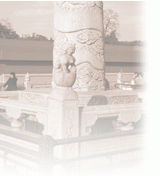| China pulls through int'l financial crisis with determination | ||
| 2010-01-10 21:11 | ||
|
BEIJING, Jan. 10 (Xinhua) -- China greeted the new year with a promising economy, improving people's livelihood and a stable society, a hard earned achievement in the face of the worst global economic depression since the World War II.
On the first day of 2010, Chinese President Hu Jintao paid a visit to a small village in northern Hebei Province.
He went there not only to convey New Year greetings to common people, but also to investigate how to sustain stable and relatively fast economic growth after China survived the impact of the crisis that struck even the world's most powerful economies. Under a leadership with determination and foresight and with joint efforts of the nation, the country's economy has withstood the toughest test in this century. Be PREPARED FOR DANGER, ACT QUICKLY China has been prepared for possible dangers even at the most peaceful moment. On June 13, 2008, Hu told a meeting of senior leaders of the central authorities and senior officials of central and local governments that the country should fully understand the problems and challenges it would face and prepare for possible difficulties. At that time, the world economy was shadowed by the deepening subprime lending crisis in the United States. In September 2008, following the filing for bankruptcy protection by Lehman Brothers, the fourth largest investment bank in the U.S. with a history of 158 years, the financial crisis began to spread quickly across the world. Closely related with the developed economies through its high reliance on foreign trade, the Chinese economy also felt the impact from the crisis. Export growth slowed down, some factories were closed and workers went home as fewer orders came. The central government responded with preferential duty policies, easing restrictions over bank loans, lowering transaction tax of real estates and increasing credits for small and medium-sized enterprises. The central authorities established a special team to cope with the crisis. On Nov. 6, 2008, China announced ten measures to expand domestic consumption and boost economic growth and decided to adopt a pro-active fiscal policy and moderately loose monetary policy, revealing a hike in government investment aimed at bringing about 4 trillion yuan (579.71 billion U.S. dollars) of investment in two years. A month later, at the Central Economic Work Conference that set the tone for economic policies in 2009, China drew guidelines for addressing the global financial crisis -- it would expand domestic consumption, accelerate transformation of its development pattern and structural adjustment, deepen reforms in key sectors and links, improve the level of opening up and improve people's livelihood … Detailed policies followed one after another. The central government issued plans to invigorate development of 10 industries including steel, car making, textile and machinery, as well as several regional development plans. It also put forward preferential policies to encourage sales of home appliance, cars and motorbikes in rural areas. More government investment came to infrastructure, scientific research and public service. Although many decisions were made in Beijing, they were based on collective wisdom. Since the global financial crisis broke out, nine members of the Standing Committee of the Political Bureau of the Communist Party of China (CPC) Central Committee have visited various regions, especially the worst-hit regions, talking with people from all walks of life, including businessmen, workers, city residents and farmers. In November 2008, Hu hold a meeting with representatives of non-Communist parties, the business circle and persons without party affiliation to solicit advice on how to cope with the crisis. At the annual sessions of the National People's Congress (NPC) and the National Committee of the Chinese People's Political Consultative Conference (CPPCC) in March 2009, nine top leaders attended dozens of discussions with legislators and political advisors. As the policies and measures were implemented step by step, the country's economic growth rebounded to 8.9 percent in the third quarter of 2009, realizing a V-shape recovery. |
|
||||||||||
 |
||||||||||
|
| ||||||||||
|
| ||||||||||
 | ||||||||||
 | ||||||||||
 |
| Home > News | |||
|
|
|||
|
| |||

